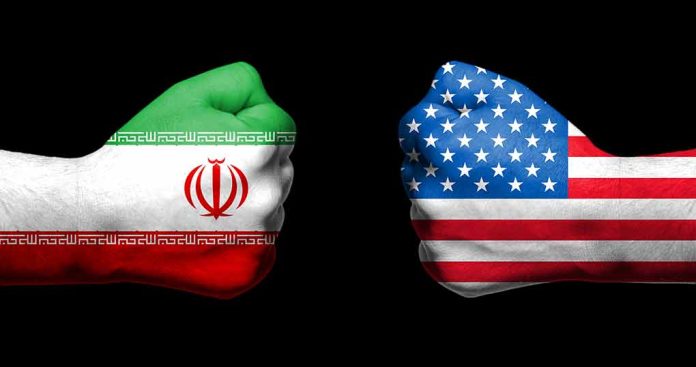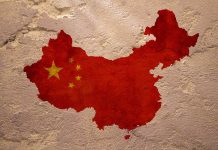
Former President Donald Trump issues a chilling warning to Iran: assassinate him, and face total obliteration.
Key Takeaways
- Trump orders advisers to “obliterate” Iran if assassination attempts occur
- Federal authorities have monitored Iranian threats against Trump for years
- Trump’s killing of Qassem Soleimani in 2020 heightened tensions with Iran
- Iran’s oil exports have increased under Biden’s presidency, evading sanctions
- Trump criticizes Biden for not enforcing oil-export sanctions rigorously
Trump’s Stern Warning to Iran
In a bold move that underscores the ongoing tensions between the United States and Iran, former President Donald Trump has issued a stark warning to the Islamic Republic. Trump announced that he had instructed his advisers to “obliterate” Iran should there be any attempt on his life. This declaration came during the signing of a presidential memorandum focused on preventing Iran from acquiring nuclear weapons.
Trump’s aggressive stance is not without precedent. Federal authorities have been monitoring Iranian threats against Trump and other officials for years, particularly since Trump ordered the killing of Iranian General Qassem Soleimani in 2020. This act significantly escalated tensions between the two nations and led to increased threats from Iran.
“If they did that they would be obliterated” – Donald Trump
The former president’s warning comes in the wake of a thwarted Iranian plot to assassinate him, uncovered by the Justice Department in November. According to reports, an Iranian government asset, Farhad Shakeri, was allegedly instructed to surveil and assassinate Trump. This failed attempt only serves to highlight the ongoing hostility between Trump and the Iranian regime.
Nuclear Concerns and Sanctions
Trump’s memorandum calls for maximum economic pressure on Iran, including sanctions, with the aim of preventing the country from acquiring nuclear weapons. The president has accused his former president, Joe Biden, of not enforcing oil-export sanctions rigorously enough, allowing Iran to increase its oil exports and potentially fund its nuclear ambitions.
“With me, it’s very simple: Iran cannot have a nuclear weapon.” – Trump
Reports suggest that Iran is accelerating uranium enrichment, nearing weapons-grade levels. This development has alarmed the international community and prompted renewed calls for action. Trump’s approach aims to drive Iran’s oil exports to zero, a move that could significantly impact global oil prices and put immense pressure on the Iranian economy.
International Response and Sanctions Evasion
While Trump pushes for a hardline approach, the international community remains divided on how to address the Iranian nuclear issue. Britain, France, and Germany have indicated their readiness to trigger a snapback of sanctions on Iran if necessary, a move that Iran’s U.N. ambassador has called “unlawful and counterproductive.”
Despite U.S. sanctions, China continues to buy Iranian oil, effectively bypassing the economic pressure intended to curb Iran’s nuclear ambitions. This undermines the effectiveness of the sanctions regime and provides Iran with much-needed economic relief.
The Biden Administration’s Approach
Trump’s criticism of the Biden administration’s handling of Iran has been echoed by others in Washington. A group of 62 House members urged Biden to fully enforce U.S. sanctions on Iranian oil sales, noting a significant increase in exports. Reports suggest that Iran earned $88 billion from illicit oil exports between February 2021 and October 2023, highlighting the challenges in enforcing sanctions effectively.
The Biden administration’s approach has been more diplomatic, with attempts to re-engage Iran in nuclear talks. However, this strategy has faced criticism, particularly after Biden agreed to release $6 billion in frozen Iranian oil proceeds in exchange for the release of five Iranian-Americans. While the funds were intended for humanitarian purposes, the deal faced backlash and was reportedly paused after Iran-backed Hamas attacked Israel in October 2023.
As tensions continue to simmer and Iran’s nuclear program advances, the international community remains watchful. Trump’s threat of obliteration may be seen as a return to his “maximum pressure” strategy, but it also underscores the complex and volatile nature of U.S.-Iran relations. The path forward remains uncertain, with the specter of nuclear proliferation looming large over the Middle East.






















